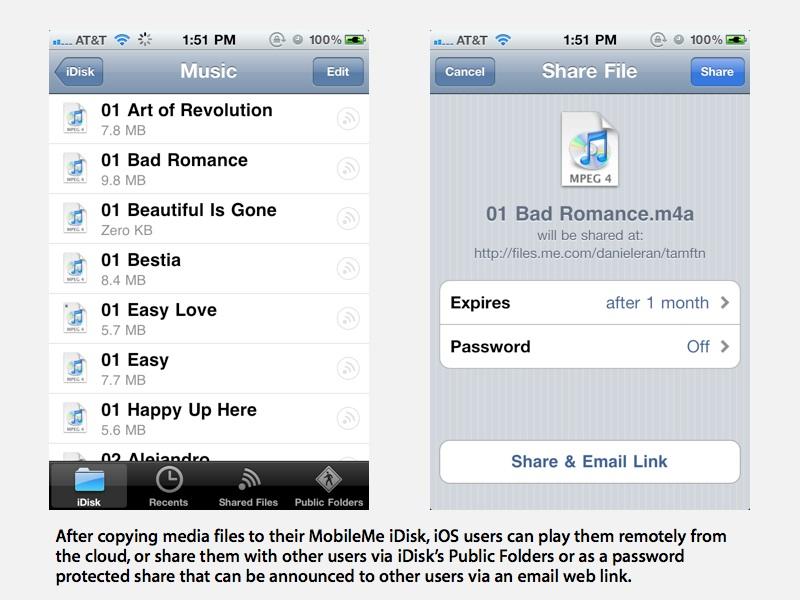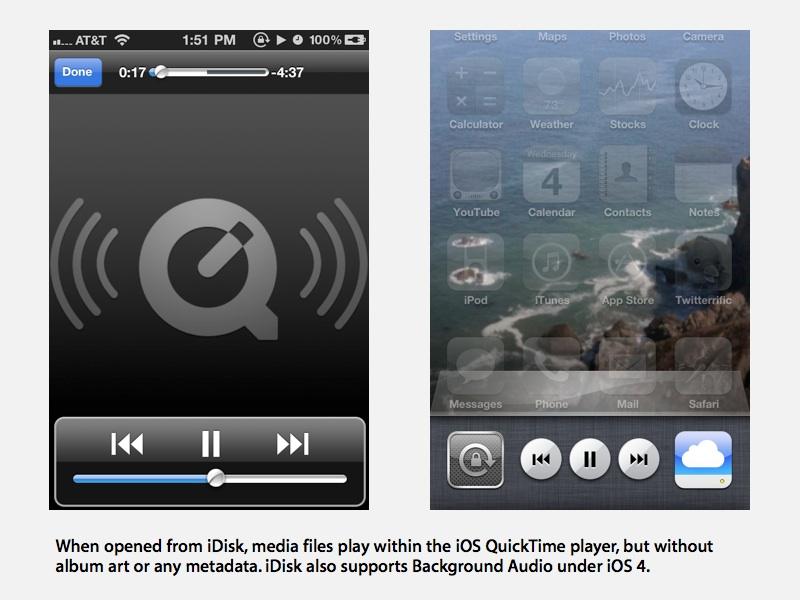Nearly a month after Apple added support for background audio playback from its MobileMe service to the free iOS iDisk app, a flurry of interest has swirled around the feature.
AppleInsider noted the new feature when iDisk was updated early last month. The new version enabled background support for audio playback of files copied to a user's MobileMe iDisk, providing users with a new cloud-based music storage service.
MobileMe's iDisk feature enables users to copy local files from their desktop computer to their own personal online file share in the cloud, and then access those files from the web, from Mac OS X's built in support for iDisk, or through the iDisk app on iPhone, iPad, and iPod touch.
The updated iDisk mobile app also allows users to open files directly in an app that is registered to handle them, enabling iPad users to open Pages or Keynote documents in those apps, for example. Media files opened from a user's iDisk play through the standard iOS QuickTime player, and iDisk supports the iOS 4 Background Audio feature, enabling users to continue listening to music while switching to another app.


The manual iTunes cloud
User Michel Robertson recently profiled the cloud-based background music feature on iOS devices, noting that while it's "not iTunes in the cloud" it is "definitely moving the Cupertino company in that direction." Various media outlets covered the mention; Apple does not prominently feature the capability in its marketing of the iPhone, iPad, iPod touch or its MobileMe service.
Unlike Calendars, Contacts, or Bookmarks, there's no support in Apple's iTunes or MobileMe tools for automatically syncing media files to iDisk, nor is there any support for using playlists or browsing metadata or album art in the iDisk app. It's currently purely a manual file copy process that allows users to remotely access cloud-based media files on their iOS devices.
However, the built in public file sharing feature of iDisk can make it easy for users to copy up their own unprotected media files and make them available to anyone (via their Public Folder), or to specific users via a password. That feature may get the attention of the studios and labels, who earlier quashed unlimited Internet file sharing from iTunes due to piracy concerns.
It is widely believed that Apple's official cloud sharing services are being held up by negotiations needed to work out licensing between Apple and the studios and labels, which want additional fees if Apple allows users to host their own songs online for remote playback.